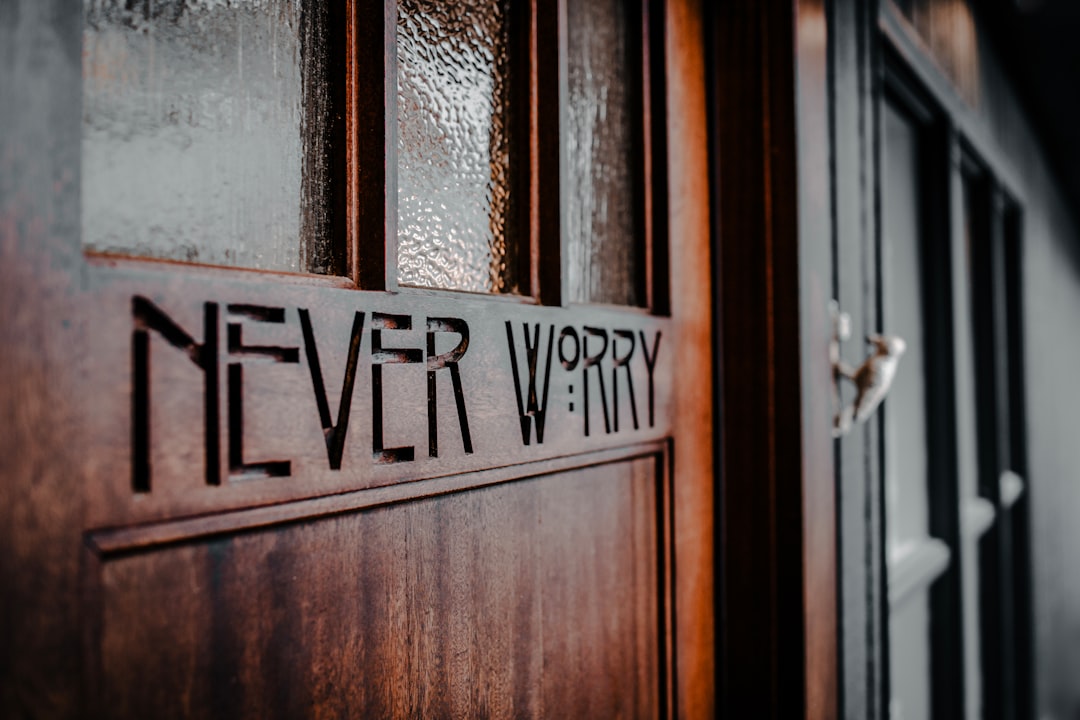You may often find yourself caught in the web of others’ opinions, feeling their judgments weigh heavily on your decisions and self-perception. The truth is, the opinions of those around you can shape your thoughts and actions in profound ways. Whether it’s a casual remark from a friend or a critical comment from a colleague, these external voices can influence your self-esteem and how you view your place in the world.
You might notice that you alter your behavior or choices based on what you think others expect of you, leading to a cycle of seeking approval that can be exhausting and unfulfilling. Moreover, the impact of others’ opinions can extend beyond immediate interactions. Social media has amplified this phenomenon, creating an environment where validation is often sought through likes and comments.
You may find yourself scrolling through feeds, comparing your life to curated snapshots of others’ experiences. This constant comparison can lead to feelings of inadequacy and self-doubt, as you measure your worth against an often unrealistic standard. Understanding this dynamic is crucial; it allows you to recognize when you are giving too much power to external validation and helps you reclaim your sense of self.
Key Takeaways
- Others’ opinions can impact our self-worth and confidence
- Seeking validation from others can be a sign of low self-worth
- Excessive worrying about others’ opinions can lead to anxiety and stress
- Cultivating self-awareness and mindfulness can help in managing others’ opinions
- Practicing self-compassion and self-acceptance is crucial for building confidence
Recognizing the role of self-worth in seeking validation
Your self-worth is the foundation upon which your confidence and happiness are built. When you have a strong sense of self-worth, you are less likely to seek validation from others, as you inherently understand your value. However, if your self-esteem is fragile or dependent on external approval, you may find yourself constantly seeking affirmation from those around you.
This reliance on others for validation can lead to a cycle of anxiety and disappointment, as their opinions can be unpredictable and often out of your control. Recognizing the role of self-worth in your life is essential for breaking free from this cycle. You might start by reflecting on what makes you feel valuable and worthy outside of others’ opinions.
Consider your achievements, your passions, and the qualities that make you unique. By focusing on these intrinsic values, you can begin to cultivate a sense of self that is resilient to external judgments. This shift in perspective can empower you to embrace who you are without needing constant reassurance from others.
Identifying the signs of excessive worrying about others’ opinions

You may not always be aware of how much you worry about what others think, but there are often telltale signs that indicate this preoccupation. For instance, if you find yourself overanalyzing conversations or replaying interactions in your mind, it could be a sign that you’re overly concerned with how others perceive you. You might also notice that you frequently seek reassurance from friends or family about your choices or appearance, indicating a reliance on external validation that can be detrimental to your self-esteem.
Another sign to watch for is the tendency to avoid situations where you fear judgment. If you find yourself skipping social events or holding back in discussions because you’re worried about how others will react, it’s time to take a step back and evaluate the impact this has on your life. Recognizing these patterns is the first step toward addressing them.
By acknowledging that excessive worrying about others’ opinions is affecting your well-being, you can begin to take proactive steps toward fostering a healthier relationship with yourself and those around you.
Cultivating self-awareness and mindfulness
| Metrics | Results |
|---|---|
| Number of mindfulness sessions per week | 5 |
| Self-awareness assessment score | 8 out of 10 |
| Percentage of time spent in present moment | 70% |
Cultivating self-awareness is a powerful tool in understanding how others’ opinions affect you. By becoming more attuned to your thoughts and feelings, you can identify when you’re seeking validation from external sources rather than relying on your own judgment. Mindfulness practices, such as meditation or journaling, can help you develop this awareness.
When you take time to reflect on your emotions and reactions, you create space for understanding and growth. Mindfulness also encourages you to stay present in the moment rather than getting lost in worries about what others think. When you’re fully engaged in your experiences, you’re less likely to be distracted by external judgments.
You might find that practicing mindfulness helps you appreciate your own thoughts and feelings without the need for external validation. This shift can lead to greater confidence in your decisions and a more authentic expression of who you are.
Practicing self-compassion and self-acceptance
Self-compassion is an essential aspect of building a healthy relationship with yourself. It involves treating yourself with kindness and understanding, especially during times of struggle or failure. When you practice self-compassion, you’re less likely to be swayed by others’ opinions because you recognize that everyone makes mistakes and faces challenges.
You might start by acknowledging your feelings without judgment and reminding yourself that it’s okay to be imperfect. Self-acceptance goes hand in hand with self-compassion. It means embracing who you are, flaws and all, without constantly seeking approval from others.
You may find it helpful to create affirmations that reinforce your worthiness and uniqueness. By regularly reminding yourself of your strengths and qualities, you can cultivate a sense of acceptance that shields you from the negative impact of external judgments. This practice not only enhances your self-esteem but also fosters resilience against the pressures of societal expectations.
Setting healthy boundaries with others

Setting healthy boundaries is crucial for protecting your mental well-being and maintaining a sense of self amidst external influences. You may find that certain relationships drain your energy or lead to excessive worrying about their opinions. By establishing clear boundaries, you can create a space where you feel safe to express yourself without fear of judgment.
This might involve communicating openly with friends or family about what behaviors are acceptable and which ones are not. Additionally, learning to say no is an important aspect of boundary-setting. You might feel pressured to conform to others’ expectations or participate in activities that don’t align with your values.
By asserting your needs and desires, you empower yourself to prioritize your well-being over the desire for approval. This practice not only strengthens your sense of self but also encourages healthier relationships built on mutual respect.
Challenging negative thought patterns and cognitive distortions
You may find that negative thought patterns often creep into your mind when you’re worried about what others think.
Recognizing these patterns is essential for challenging them effectively.
When you catch yourself engaging in negative self-talk, take a moment to pause and evaluate the validity of those thoughts. One effective strategy is to reframe these negative thoughts into more balanced perspectives.
By actively working to reframe these thoughts, you can reduce their power over your emotions and decisions, allowing for a more positive outlook on yourself and your interactions with others.
Building confidence and self-esteem
Building confidence takes time and effort, but it is entirely achievable with dedication and practice. You might start by setting small goals for yourself—whether it’s speaking up in a meeting or trying something new—each success can contribute to a growing sense of confidence. Celebrate these achievements, no matter how minor they may seem; they are stepping stones toward greater self-assurance.
Additionally, surrounding yourself with supportive individuals who uplift rather than criticize can significantly impact your confidence levels. Seek out relationships that encourage growth and positivity; these connections can help reinforce your sense of worthiness and diminish the influence of negative opinions from others. As you build confidence, you’ll likely find that you’re less affected by external judgments and more focused on living authentically.
Finding support and seeking professional help if needed
Sometimes, navigating the complexities of self-worth and external validation can feel overwhelming. If you’re struggling to manage these feelings on your own, seeking support from friends, family, or professionals can be incredibly beneficial. Talking about your experiences with someone who understands can provide clarity and perspective that may be difficult to achieve alone.
Professional help, such as therapy or counseling, can offer valuable tools for addressing deep-seated issues related to self-esteem and validation-seeking behavior. A trained therapist can guide you through strategies tailored to your unique situation, helping you develop healthier coping mechanisms and fostering a more positive relationship with yourself.
Embracing authenticity and individuality
Embracing authenticity means celebrating who you are without fear of judgment or rejection from others. You might start by identifying what makes you unique—your interests, values, and quirks—and allowing those aspects to shine through in your daily life. When you’re true to yourself, you’re less likely to be swayed by others’ opinions because you’re grounded in your identity.
This journey toward authenticity may require stepping outside of societal norms or expectations that don’t resonate with you. It’s important to remember that being different is not only acceptable but also valuable; diversity enriches our experiences and perspectives. By embracing your individuality, you’ll inspire others to do the same while cultivating an environment where authenticity thrives.
Celebrating personal growth and progress
As you navigate the journey toward greater self-acceptance and independence from others’ opinions, it’s essential to celebrate your progress along the way. Acknowledging even small victories can reinforce positive changes in your mindset and behavior. You might keep a journal where you document moments of growth or breakthroughs in overcoming negative thought patterns; this practice serves as a reminder of how far you’ve come.
Celebrating personal growth also involves recognizing setbacks as part of the journey rather than failures. Each challenge presents an opportunity for learning and development; by reframing setbacks as valuable experiences, you’ll cultivate resilience that empowers you to continue moving forward. Embrace this journey with compassion for yourself—after all, personal growth is not a destination but an ongoing process filled with ups and downs that ultimately lead to a more authentic life.
If you’re looking to delve deeper into the topic of overcoming the fear of judgment and learning how to stop worrying about what others think, you might find this related article insightful. It explores various psychological strategies and practical tips to help you build self-confidence and focus on your own values rather than external opinions. For more information, check out this article on Freaky Science:
